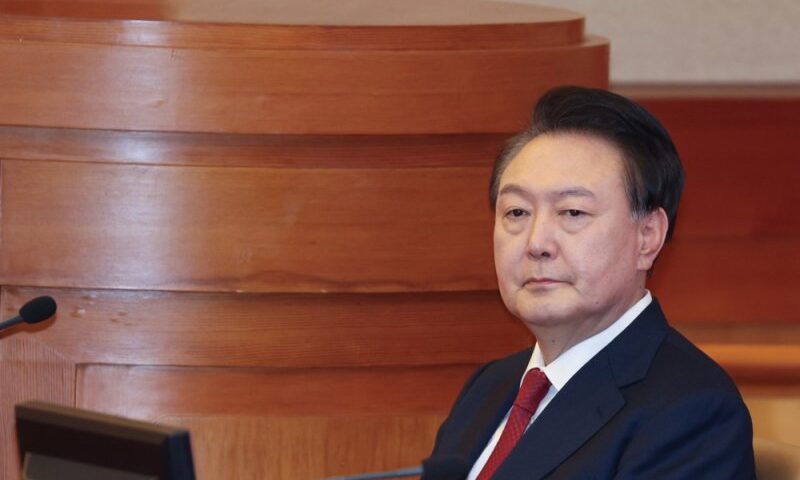
WWF Report Highlights Dramatic Decline in Global Wildlife Populations
October 13, 2024
Pakistan Progressive Forum: Steering Committee Discusses Key Initiatives for February 2025
January 27, 2025South Korean prosecutors have formally indicted impeached President Yoon Suk Yeol on charges of leading an insurrection through his brief imposition of martial law on December 3. The move, confirmed on Sunday, has drawn mixed reactions, with Yoon’s legal team condemning the indictment as a “grave misstep.” At the same time, the main opposition party hailed it as a step toward accountability.
This unprecedented indictment marks the first time a South Korean president has faced charges of insurrection, which could lead to a life sentence or even the death penalty. However, executions have not been carried out in the country for decades.
Martial Law Sparks Political Crisis
Yoon’s martial law decree, which sought to suspend political and parliamentary activities and impose media restrictions, ignited widespread political turmoil in South Korea, Asia’s fourth-largest economy and a key U.S. ally. The crisis resulted in the impeachment and suspension of the prime minister and the indictment of senior military officials allegedly involved in the plan.
Describing the martial law as a response to a “national crisis caused by opposition forces,” Yoon’s lawyers argued that the declaration was intended as a warning rather than an actual coup. The main opposition Democratic Party, however, accused him of abusing power to undermine democratic institutions.
Legal and Political Ramifications
Prosecutors allege that Yoon orchestrated the insurrection, prompting a wave of legal challenges against him and his administration. Last week, anti-corruption investigators recommended charges, following Yoon’s dramatic arrest on January 15, when he became the first sitting president in South Korean history to be detained.
Yoon’s arrest followed a tense armed standoff between his security detail and law enforcement. Although courts have twice denied prosecutors’ requests to extend his detention, his indictment has led to renewed efforts to keep him in custody during the ongoing investigation.
Constitutional Court and Political Future
In parallel with the criminal trial, South Korea’s Constitutional Court deliberates whether to permanently remove Yoon from office. The court, which has 180 days to decide, could either reinstate his presidential powers or strip him of his position, triggering a presidential election within 60 days if he is removed.
Yoon’s six-hour martial law declaration was swiftly rescinded after lawmakers, confronting armed soldiers in parliament, voted against the decree. The chaotic scene saw troops in body armor and night-vision gear entering the building through shattered windows.
Democratic Party spokesman Han Min-soo announced, “The prosecution has decided to indict Yoon Suk Yeol as the ringleader of insurrection. The process of holding him accountable has finally begun.”
As South Korea navigates this unprecedented political crisis, the case against Yoon continues to polarize public opinion and test the resilience of the nation’s democratic institutions.

